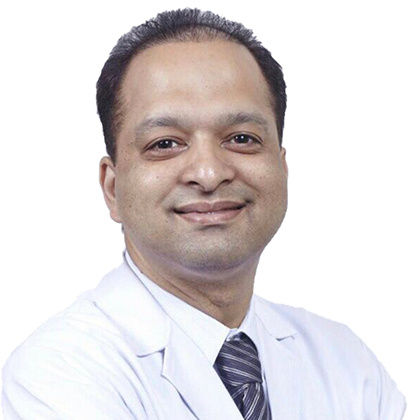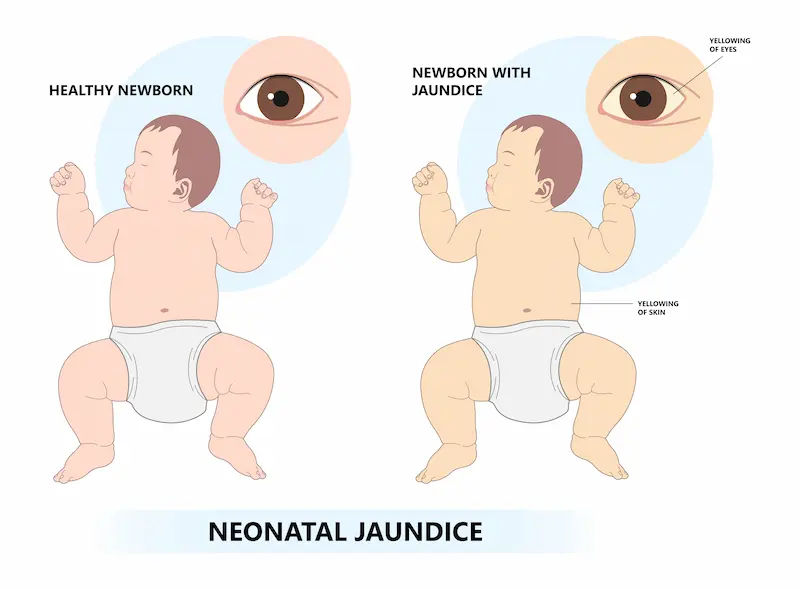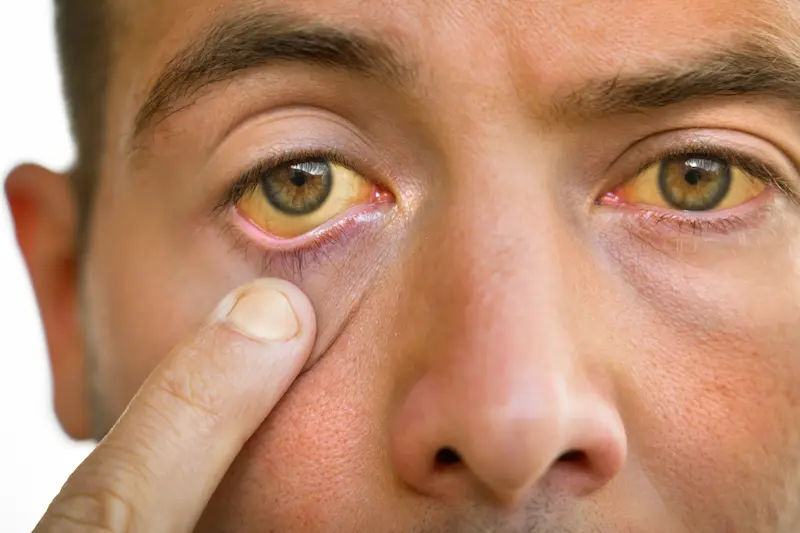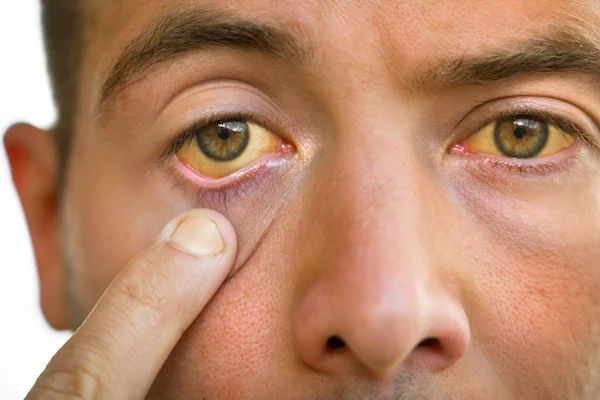Jaundice: Is It a Preventable Disease? A Practical Guide
Learn what jaundice is, its preventable causes, and practical steps for newborns and adults to protect liver health through vaccines, hygiene, and lifestyle.


Introduction
Seeing yellowing of the skin or eyes can be alarming. That yellow tint—called jaundice—signals a build-up of bilirubin, a pigment produced when red blood cells break down. While jaundice itself is a symptom rather than a disease, many of the conditions that cause jaundice are preventable. That’s good news: by acting on vaccinations, hygiene, and lifestyle habits, you can dramatically reduce the risk of developing jaundice in the first place.
In this practical guide to jaundice and preventable disease, you’ll learn what jaundice is, the most common preventable causes across ages, and the science-backed steps that keep your liver—and your skin and eyes—healthy. We’ll cover newborn jaundice and what parents can do early, adult risk factors like hepatitis A and B, alcohol and fatty liver disease, gallstones, medication safety, and when to seek medical care. You’ll also get checklists, examples, and easy-to-implement strategies. If symptoms persist beyond two weeks or you notice worsening yellowing, dark urine, or pale stools, consult a doctor online with Apollo 24|7 for further evaluation.Consult Top Specialists
Jaundice 101: Symptom vs Preventable Disease
Here's what you need to know to understand jaundice:
What jaundice is (and isn’t): the bilirubin story
Jaundice is the yellowing of skin, the whites of the eyes, and sometimes mucous membranes due to elevated bilirubin in the blood. Bilirubin is produced when red blood cells are recycled; the liver processes it and sends it out in bile. Jaundice happens when this system is overwhelmed or obstructed—by increased bilirubin production (hemolysis), impaired processing (liver cell injury), or blocked flow (bile duct obstruction). Because jaundice is a sign, not a standalone disease, prevention focuses on the underlying, often preventable conditions.
Types of jaundice: pre-hepatic, hepatic, post-hepatic
• Pre-hepatic: Excess red cell breakdown (e.g., hemolysis from malaria, G6PD triggers), raising unconjugated bilirubin.
• Hepatic: Liver cell injury (e.g., viral hepatitis, alcoholic hepatitis, nonalcoholic fatty liver disease, drug-induced liver injury) prevents normal processing.
• Post-hepatic (cholestatic): Bile duct obstruction (e.g., gallstones, strictures), causing conjugated bilirubin to back up into the blood.
Why the “preventable disease” framing still matters
Even though jaundice isn’t a disease per se, major causes like hepatitis A and B, alcohol-related liver disease, and many cases of hepatitis E (via sanitation) are preventable. Vaccination, hygiene, and safer habits can block these root causes and dramatically reduce the global burden of liver disease.
Preventable Causes of Jaundice You Can Act On
Here's where prevention can make a real difference:
Viral hepatitis A, B, and E
Hepatitis A and E spread mainly via contaminated food and water; prevention is possible through clean water, handwashing, safe food handling, and hepatitis A vaccination. Hepatitis B spreads through blood and body fluids; prevention focuses on vaccination, safer sex, and avoiding shared needles or unsterile equipment. Hepatitis B immunisation is highly effective and a cornerstone of prevention.
Alcohol-related and fatty liver disease
Alcohol can inflame and scar the liver, leading to jaundice. Nonalcoholic fatty liver disease, increasingly common with sedentary lifestyle and high-calorie diets, can progress to steatohepatitis and cirrhosis; weight management and metabolic health reduce risk. Prevention includes alcohol moderation or abstinence, a balanced diet, physical activity, and control of diabetes and lipid levels.
Gallstones and blocked bile ducts
Gallstones can obstruct bile flow, especially in people with rapid weight loss, obesity, or genetic predispositions. Maintaining a healthy weight and avoiding crash dieting lowers risk, and timely care for biliary pain prevents complications.
Medication- and toxin-induced liver injury
Acetaminophen overdose is a common cause of acute liver injury; mixing it with alcohol adds risk. Certain antibiotics, herbal supplements, and bodybuilding products can also harm the liver. Prevention includes dose vigilance, checking drug interactions, and avoiding unregulated supplements.
Hemolysis and G6PD deficiency triggers
In people with G6PD deficiency, certain foods (fava beans) and drugs (e.g., some antimalarials, sulfa drugs) can trigger hemolysis and jaundice. Knowing your G6PD status and avoiding triggers is preventive.Consult Top Specialists
Prevention Playbook: Vaccines, Hygiene, and Lifestyle
Here's how to protect your liver and reduce jaundice risk:
Vaccines that prevent hepatitis-related jaundice
• Hepatitis A vaccine: Recommended for travellers to endemic regions, people with chronic liver disease, and outbreak settings; provides long-lasting protection.
• Hepatitis B vaccine: Recommended universally; prevents chronic infection and downstream cirrhosis and cancer.
Food, water, and travel hygiene that reduce risk
Boil or appropriately treat water where safety is uncertain. Eat food that’s thoroughly cooked and served hot; avoid raw shellfish and unpeeled produce in high-risk settings. Wash hands with soap and safe water, especially before eating and after restroom use.
Safer sex and needle safety
Use condoms, limit partners, screen for hepatitis B, never share needles or personal items that can carry blood, and ensure sterile equipment for tattoos, piercings, and medical procedures.
Weight, diet, and physical activity to protect the liver
Aim for gradual weight loss if overweight and avoid drastic dieting. Emphasise vegetables, whole grains, lean protein, and healthy fats. Engage in moderate physical activity most days.
Alcohol and acetaminophen limits; drug-interaction safety
Keep alcohol within low-risk limits or abstain. Track total acetaminophen from all sources and avoid mixing with alcohol. Review supplements and medications with a clinician.
A personal “liver risk” self-audit checklist
• Am I vaccinated against hepatitis A and B?
• Do I drink above low-risk alcohol limits?
• Do I have risk factors for fatty liver disease?
• Do I travel to areas with water/food safety concerns?
• Do I take multiple medications/supplements?
• Have I had abnormal liver tests or a family history of liver/gallstone disease?
Newborns and Jaundice: What Parents Can Prevent
Here's what parents can do to protect their newborns:
Why newborn jaundice is common
Most newborns develop jaundice during days 2–4 of life due to immature liver enzymes and increased bilirubin production. While often mild, some babies develop higher levels requiring treatment. Early identification prevents serious complications like kernicterus.
Feeding, hydration, and early checkups
Frequent breastfeeding supports bilirubin excretion through stools and urine. Monitor output, schedule early follow-up within 48–72 hours after discharge, and be aware of risk factors such as prematurity, bruising, blood type incompatibility, and G6PD deficiency.
Phototherapy, bilirubin monitoring, and home light therapy tips
Phototherapy converts bilirubin in the skin into water-soluble forms excreted without liver conjugation. Some infants can receive home phototherapy under supervision; ensure device quality, eye protection, adequate feeding, and daily bilirubin checks as advised.
Red flags for kernicterus and urgent care
Seek urgent care if your newborn is very sleepy, difficult to wake, has a high-pitched cry, arches the back, has a fever, poor feeding, or rapidly deepening yellow colour, especially on the legs and palms.
Spotting, Testing, and Diagnosis: Getting It Right Early
Here's how early evaluation can help:
Symptoms that need prompt evaluation
Yellowing of skin and eyes, dark urine, pale stools, itching, abdominal pain, fever, nausea, confusion, or sleepiness are warning signs. Sudden jaundice with severe pain or fever in adults may indicate bile duct obstruction or infection.
Key tests (bilirubin, LFTs, hepatitis panel, ultrasound)
Blood tests include total and direct bilirubin, liver enzymes (AST/ALT), ALP and GGT, coagulation tests, albumin, and complete blood count. Viral panels detect hepatitis A, B, or E. Imaging like ultrasound assesses bile ducts, liver texture, and gallbladder.
When to consult a doctor or book labs from home
Newborns: jaundice in the first 24 hours, severe jaundice, or poor feeding/lethargy requires urgent evaluation. Adults: jaundice with pain, fever, mental changes, or bleeding requires urgent assessment; otherwise, online consultation and home lab tests are appropriate.
Treatment and Recovery: What to Expect and How to Help
Here's what management involves:
Cause-specific treatments
Gallstones: endoscopic removal or surgery if needed; antibiotics for infection.
Viral hepatitis: supportive care for HAV/HEV; antivirals or monitoring for HBV.
Alcoholic hepatitis: cessation, nutrition, sometimes specialist care.
NAFLD/NASH: lifestyle modification.
Drug-induced liver injury: stop the offending drug; use antidotes if indicated.
Hemolysis: treat triggers and manage complications.
Home care, diet, and monitoring
Hydration, rest, balanced meals, avoiding alcohol and unneeded medications, and follow-up labs support recovery. Itching relief may include bile acid binders or clinician-prescribed therapies.
Preventing recurrence and long-term complications
Complete hepatitis vaccinations, maintain healthy lifestyle habits, avoid known triggers, and monitor chronic liver conditions regularly.Consult Top Specialists
Conclusion
Jaundice signals that something is affecting the body, but many causes are preventable. Vaccinations, hygiene, safe practices, and healthy lifestyle choices can prevent most infections and liver-related causes. For families, early newborn follow-ups and feeding practices prevent complications. If jaundice appears, prompt evaluation with blood tests and imaging ensures timely treatment. Apollo 24|7 offers home collection for liver panels and online consultations to guide next steps. Completing a liver risk self-audit, checking vaccine status, and updating hygiene habits are simple actions that protect liver health for life.
Consult Top Specialists

Dr. Pukhraj Singh Jeji
Gastroenterology/gi Medicine Specialist
13 Years • MBBS, MD ( Internal Medicine ), DM ( Gastroenterology ), Consultant - Gastroenterology
Bhubaneswar
Apollo Hospitals Old Sainik School Road, Bhubaneswar

Dr. E Prabhakar Sastry
General Physician/ Internal Medicine Specialist
40 Years • MD(Internal Medicine)
Manikonda Jagir
Apollo Clinic, Manikonda, Manikonda Jagir
(150+ Patients)

Dr. Aakash Garg
Gastroenterology/gi Medicine Specialist
12 Years • MBBS, DNB (Medicine), DrNB (Gastroentrology).
Bilaspur
Apollo Hospitals Seepat Road, Bilaspur
(150+ Patients)

Dr. Srinivasa Reddy
Hepatologist
12 Years • MBBS, MD (General Medicine), DM (Hepatology),ASGE
Hyderabad
Myra Liver & Gastro Care, Hyderabad

Dr. Rajeev Shandil
Gastroenterology/gi Medicine Specialist
15 Years • MBBS, DNB (Internal Medicine), DNB (Gastroenterology)
Delhi
Apollo Hospitals Indraprastha, Delhi
(150+ Patients)
Consult Top Specialists

Dr. Pukhraj Singh Jeji
Gastroenterology/gi Medicine Specialist
13 Years • MBBS, MD ( Internal Medicine ), DM ( Gastroenterology ), Consultant - Gastroenterology
Bhubaneswar
Apollo Hospitals Old Sainik School Road, Bhubaneswar

Dr. E Prabhakar Sastry
General Physician/ Internal Medicine Specialist
40 Years • MD(Internal Medicine)
Manikonda Jagir
Apollo Clinic, Manikonda, Manikonda Jagir
(150+ Patients)

Dr. Aakash Garg
Gastroenterology/gi Medicine Specialist
12 Years • MBBS, DNB (Medicine), DrNB (Gastroentrology).
Bilaspur
Apollo Hospitals Seepat Road, Bilaspur
(150+ Patients)

Dr. Srinivasa Reddy
Hepatologist
12 Years • MBBS, MD (General Medicine), DM (Hepatology),ASGE
Hyderabad
Myra Liver & Gastro Care, Hyderabad

Dr. Rajeev Shandil
Gastroenterology/gi Medicine Specialist
15 Years • MBBS, DNB (Internal Medicine), DNB (Gastroenterology)
Delhi
Apollo Hospitals Indraprastha, Delhi
(150+ Patients)
Consult Top Specialists

Dr. Pukhraj Singh Jeji
Gastroenterology/gi Medicine Specialist
13 Years • MBBS, MD ( Internal Medicine ), DM ( Gastroenterology ), Consultant - Gastroenterology
Bhubaneswar
Apollo Hospitals Old Sainik School Road, Bhubaneswar

Dr. E Prabhakar Sastry
General Physician/ Internal Medicine Specialist
40 Years • MD(Internal Medicine)
Manikonda Jagir
Apollo Clinic, Manikonda, Manikonda Jagir
(150+ Patients)

Dr. Aakash Garg
Gastroenterology/gi Medicine Specialist
12 Years • MBBS, DNB (Medicine), DrNB (Gastroentrology).
Bilaspur
Apollo Hospitals Seepat Road, Bilaspur
(150+ Patients)

Dr. Srinivasa Reddy
Hepatologist
12 Years • MBBS, MD (General Medicine), DM (Hepatology),ASGE
Hyderabad
Myra Liver & Gastro Care, Hyderabad

Dr. Rajeev Shandil
Gastroenterology/gi Medicine Specialist
15 Years • MBBS, DNB (Internal Medicine), DNB (Gastroenterology)
Delhi
Apollo Hospitals Indraprastha, Delhi
(150+ Patients)
More articles from Jaundice
Frequently Asked Questions
1. Is jaundice a preventable disease?
Jaundice itself is a symptom, not a disease, but many causes like hepatitis A and B, alcohol-related liver injury, and some hepatitis E cases are preventable.
2. How can I prevent hepatitis A and B?
Get vaccinated, practice safe sex, avoid shared needles, and follow food and water safety practices.
3. What bilirubin level is considered high?
Even mildly elevated levels require evaluation if jaundice is present. Seek urgent care with fever, severe pain, confusion, or pale stools.
4. Can diet alone prevent jaundice?
Diet supports liver health but cannot replace vaccines or hygiene measures. Balanced diet, weight control, and limited alcohol help prevent fatty liver and gallstones.
5. What should parents do to prevent newborn jaundice complications?
Feed frequently, attend early follow-ups, and follow phototherapy advice. Seek urgent care for lethargy, poor feeding, or rapidly worsening yellowing.
 (1).jpg)



 (1).webp)